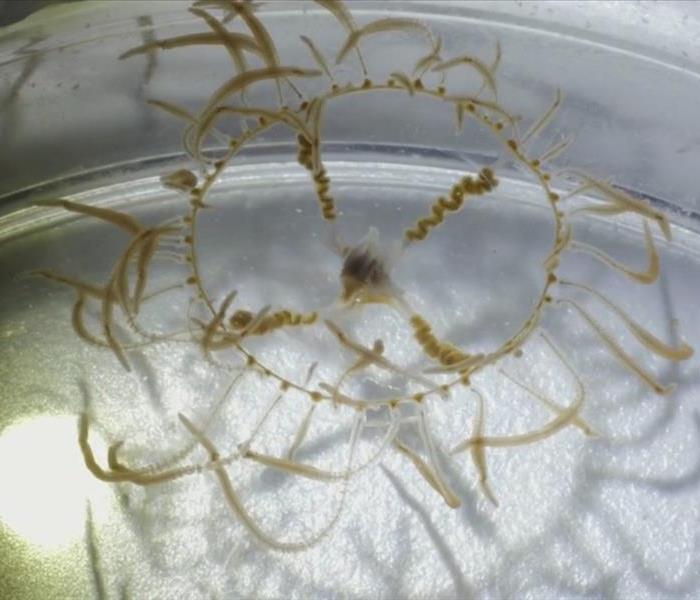Should we worry about dangerous clinging jellyfish at Jersey Shore?
6/29/2016 (Permalink)
Concerned over a fisherman’s discovery of a rare and unpleasant jellyfish in Barnegat Bay over the weekend, and a possible encounter between the same species and a swimmer in the Shrewsbury River on Wednesday, state officials took to the water to determine the prevalence of clinging jellyfish in New Jersey.
And they came up with nothing.
According to Gary Buchanan with the state Department of Environmental Protection, none of the dime-sized creatures were pulled out of the water during several towing attempts by the department on Thursday.
“They’re not widespread,” Buchanan told New Jersey 101.5.
Clinging jellyfish are native to the Pacific Ocean. It’s not exactly certain how the species could have ended up in New Jersey’s waters, but it’s been suggested they latched themselves on to ships coming from the West Coast.
This week on Facebook, the Monmouth County Office of Emergency Management alerted residents of the presence of clinging jellyfish in the Shrewsbury River. Three unconfirmed jellies were found in the river, where a Middletown man was stung by what was believed to be a clinging jellyfish.
The victim told NBC 4 New York it felt like “every single muscle in my body had a Charlie horse in it.”
Buchanan describes the sting as “potent,” delivering a neurotoxin that can affect muscles and organs.
The good news is you won’t find this species in ocean waters, Buchanan said. Staying true to their name, the clinging jellyfish cling to vegetation found in shallow bay waters.
“Typically, beaches where you have sand bottoms — swimmers don’t have to worry about that,” Buchanan said. “Be cautious if you’re wading in non-beach areas, in the bays.”
Clinging jellyfish typically feed at night on small marine animals, such as zooplankton, according to a DEP fact sheet. It’s an erratic species, meaning it is not often densely populated.
Read More: Should we worry about dangerous clinging jellyfish at Jersey Shore?





 24/7 Emergency Service
24/7 Emergency Service
